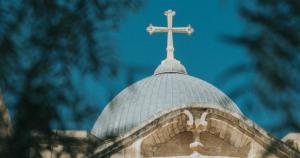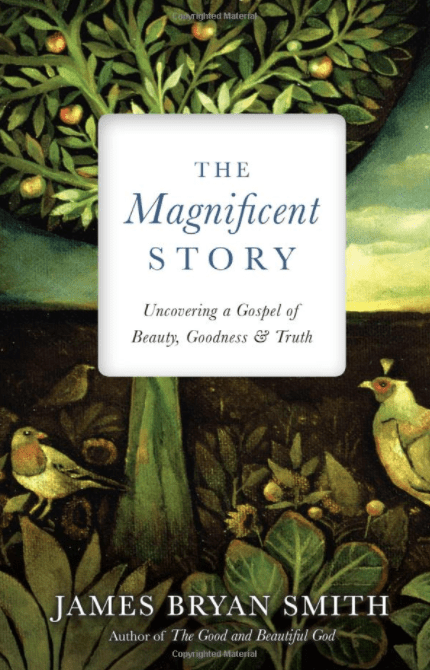 What does “spirituality” mean? I find the term altogether slippery since so many use that term for so many different facets of religion and life. Yet, it is a sturdy word when it emerges from careful theological thinking and texts of the Bible — we are “spiritual” Paul says because we no longer of the flesh and the Spirit indwells us. But this simple observation has worked itself out in so many ways, and a recent Counterpoint series book, called Four Views on Christian Spirituality (ed. Bruce Demarest), enters into dialogue between Eastern Orthodoxy, Roman Catholicism, Progressive Christianity, and Evangelical Christianity. I need to add that this sketch commits the usual: it ignores the Anabaptists, and on this topic one you can’t make them a part of any of the groups, including the evangelicals. (I’ll drop this concern now that the point is made.)
What does “spirituality” mean? I find the term altogether slippery since so many use that term for so many different facets of religion and life. Yet, it is a sturdy word when it emerges from careful theological thinking and texts of the Bible — we are “spiritual” Paul says because we no longer of the flesh and the Spirit indwells us. But this simple observation has worked itself out in so many ways, and a recent Counterpoint series book, called Four Views on Christian Spirituality (ed. Bruce Demarest), enters into dialogue between Eastern Orthodoxy, Roman Catholicism, Progressive Christianity, and Evangelical Christianity. I need to add that this sketch commits the usual: it ignores the Anabaptists, and on this topic one you can’t make them a part of any of the groups, including the evangelicals. (I’ll drop this concern now that the point is made.)
How does an Orthodox spirituality vary from your perception of Christian spirituality? What can it contribute to evangelical or mainline spirituality?
The articles are written by my friend and colleague Brad Nassif, Scott Hahn, Joseph Driskill and Evan Howard, editor for an evangelical dictionary on Christian spirituality. Dialogue on this topic is rarely seen since theologians have always preferred doctrines and confessions and creeds and exegesis over how the Christian life/spirituality is understood in each Christian tradition. So this book is a treat … and landmark contribution. We begin today with Brad Nassif’s piece.
1. Orthodox spirituality is gospel spirituality, and here Nassif emphasizes a whole life of Jesus — cross and resurrection. [There’s not enough attention on the teachings of Jesus, but neither are they completely absent as they become featured in the life of St. Anthony.] But a major feature of Orthodox gospeling is the Incarnation, and in that term the whole world of Orthodox spirituality opens up. There’s more here: the “life” of Christ involves his eternal perichoretic relation in the Trinity [mutual indwelling in love and self-giving], and all Orthodox spirituality is about entering into that perichoresis.
2. Orthodox spirituality is liturgical and here Brad gives us — in about as short a summary as one can possibly give — a complete introduction to the liturgical life of the Orthodox. (The great Hagia Sophia is pictured above.) It’s about Pascha — Good Friday to Easter. This is all about death to sin and the granting of a new resurrection-based life in Christ.
3. Orthodox spirituality is rooted in the sacraments, but the Orthodox do not believe the sacraments are restricted to seven but that all of created matter can become sacramental as God uses it as a means of grace, from Eucharist and Word and icons to daily life, vocation, and mowing the lawn. The sacraments work synergistically: collaboration between God and human free will in faith and obedience.
4. Orthodox spirituality is grounded ontologically in O/orthodox theology. Here Nassif, a master of the topic, sketches the creeds and the fundamentals of Orthodox theology. Which is either mystical or it is not genuine theology. And it is both cataphatic (knowable) and apophatic (unknowable), leading to the mystery at the heart of all Orthodox theology.
5. Orthodox spirituality is guided by monasticism, and here Brad talks about his beloved St Anthony. There are no secrets; there are no required regimens; genuine Orthodox spirituality is about loving God and loving others and about self-denial, daily, in the grind and not simply the observance of disciplines. There is the theme of silence — hesychasm — in Orthodoxy but Nassif keeps it from taking over. The use of the Jesus Prayer is also briefly discussed.
6. Orthodox spirituality is missional — ideally I say to Brad at times. That is, as the Father gives the Son outwardly, so the church is to be outward focused.
7. Orthodox spirituality aims at deification — and here Brad dips into proper meanings of the term: essentially it is about glorification of the Christian and not about pantheism or becoming divine. It is about entering in union with Christ into the full experience of the Trinity. The indwelling of the Spirit and mystical union … these are the essential features.
What to say? Well, as an Anabaptist (not to ignore a Gospel specialist), I’d like to have seen more emphasis on the teachings of Jesus — how does the Sermon on the Mount, for instance, fare in Orthodox spirituality? What about discipleship as learning from Jesus to follow his teaching and his Lordship? What about Messiahship and kingdom theology? Where is Israel’s Story in Orthodox spirituality?














